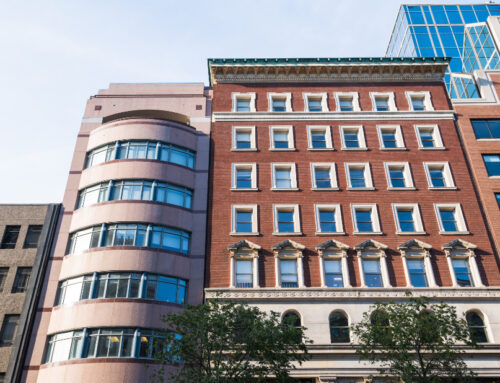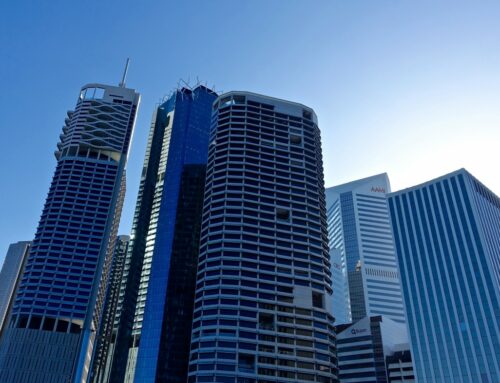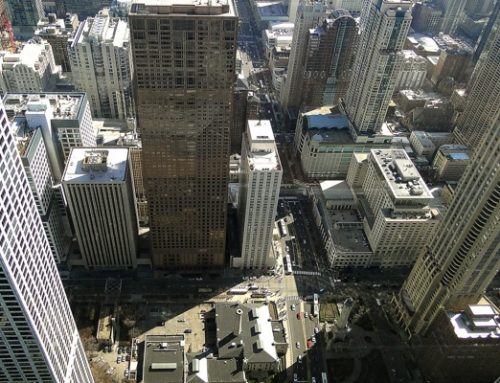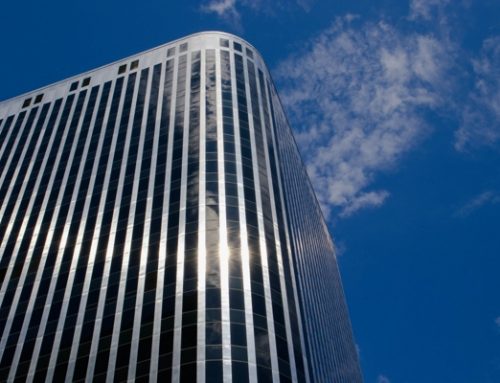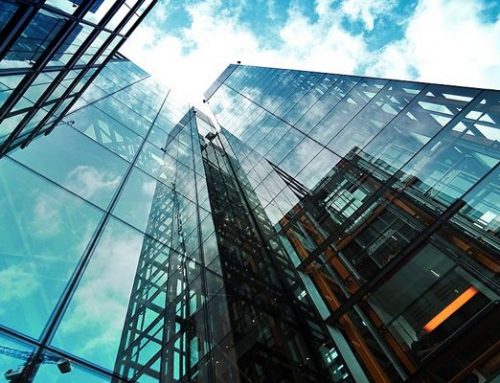The best thing about commercial roofing is its simplicity. You won’t have to worry about high labor costs because of your roof pitch. True enough, your only worry is the roofing materials costs, which make up majority of Toronto ON commercial roofing budgets.
Then again, commercial roofing materials aren’t as expensive as residential variants. In fact, you might as well spend higher on siding than your roof material; siding and function are two things that vastly improve commercial property value. However, it still pays to have a roofing materials list that helps you save time and money by giving you a good look at your roof material options and roofing materials prices.
Let’s take a look at the best types of roofing materials for flat roofs this year.
Choosing the Right Roofing Materials For Your Commercial Property
- Single-Ply Membranes (3 categories)
- Built-Up Roofing
- Modified Bitumen
- Making Sure You Have a Perfect Commercial Roof Installation
In-Demand Selections for Commercial Properties
Single-Ply Membrane
Among all the roofing materials available in the market, any contractor can say single-ply membranes will never get old. True enough, they only have a maximum lifespan of 50 years — and only expensive variants reach this age!
However, the ease of using the material allows contractors to spend less time tearing old single-ply membrane materials off and installing new seams. In fact, except for PVC roofs, all single-ply roofing materials require no special equipment for a perfect installation.
Any business or commercial property owner will want the least amount of time to disrupt their business activities, and single-ply membranes help them achieve this. While never the best choices for long-term roofing, they are practical in their respective way.
Here are different types of single-ply membranes with a high demand in Toronto ON.
TPO
Any commercial property owner who wants an “in-between” price and quality among all single-ply membrane roofing will go for thermoplastic polyolefin (TPO) roofing. True enough, it does make roof glow because of its naturally-white membrane color — though colored variants are available as well.
TPO is highly-resistant to impact damage, but not piercing damage from tools or hailstones during hailstorms. Furthermore, it lacks the strength of PVC membranes to carry heavy structures and appliances such as HVAC units.
However, its talc and fiberglass-reinforced rubber membrane withstands exceptional foot traffic. Additionally, it can withstand sufficient pooling water before cleaning and improves overall property insulation with its UV-reflective color. TPO costs about $8-$12 per square foot.
Related: Everything You Need to Know About TPO Roofs
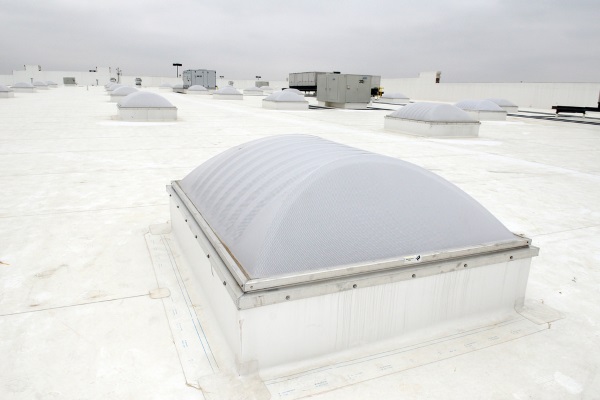
TPO roofing membranes have a naturally white shade that reflects UV rays and improves insulation
PVC
The strongest yet the most expensive single-ply roofing membrane can carry up to 300 pounds per inch of equipment and other materials. For example, if you’re about to place a rooftop gas-run electricity generator, PVC roofs can handle its weight without any doubt. In fact, it will barely leave a dent on the material.
Polyvinyl chloride (PVC) is a durable plastic compound that piping material manufacturers use for plastic pipes and fittings. However, unlike its water industry variant, PVC roofing materials have fiberglass reinforcement, which gives them their impeccable lifespan of more than 50 years and exceptional performance.
PVC roofs are capable of excellent insulation with its huge range of colors. Additionally, it can withstand multiple hailstorms and has an airtight seal due to its heat-weld installation process. PVC roofs cost about $12-$14 per square foot.
Related: How Frequent Should You Change Commercial Roofing Materials In Toronto ON’s Typical Weather?
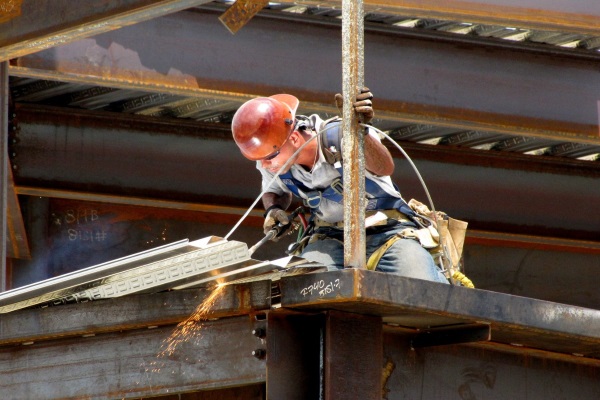
Heat welds are a must to install PVC roofing membranes effectively.
EPDM
Roofing contractors and homeowners commonly refer to it as rubber roofs. Ethylene propylene diene monomer (EPDM) roofs are environmentally-friendly roofing materials. Manufacturers use old yet durable rubber materials such as recycled tires and reinforce them using slate and sawdust. In turn, they produce membranes with outstanding strength and durability.
While they have poor UV reflective capabilities because of their natural black color, EPDM roofs can create a watertight seal with effective seam overlapping. In addition, commercial property owners can do DIY installations because the materials only require unrolling, sticking (the adhesive side of the roll), and flattening to achieve the watertight seal.
EPDM roofs cost only $0.4 per square foot, and commercial property owners can find almost every roofing supply selling them.
Built-Up Roofing
Roofing contractors refer to built-up roofing (BUR) as tar and gravel roofs. In the past, builders will use multiple waterproof membranes and fill tar between their spaces. In turn, this achieved a highly-durable, flexible, yet affordable roofing material with the longevity of PVC roofs.
Upon installation, the roofers will cover the membrane with gravel to improve the roofing materials resistance against hailstorms and debris.
Today’s BUR consists of especially-manufactured roofing membranes that create an airtight seal. True enough, the roofing tar still exudes noxious fumes. However, its modern variants have an exceptional insulating capability improving its lifespan and durability. The cost of BUR is about $13-$15, but the actual waterproofing barriers can increase or decrease this price range.
Modified Bitumen
The more compact version of BUR roofs requires no pre-construction of Toronto ON
roofing materials — the procedure BUR undertakes before the actual commercial property roof installation itself. Modified bitumen is already a complete roofing material in the same vein as single-ply membranes.
Its difference with them is that it uses multiple waterproof barriers and materials. Similar to tar and gravel roofs, it uses a substance to attach these membranes together: asphalt. To do this, roofers use a heat-weld to melt the asphalt on the roof deck to create an airtight seal.
In doing so, it guarantees exceptional insulation, resistance to heavy rainfall and hailstorms, and even pooled water. It costs $12-$15 per square foot.
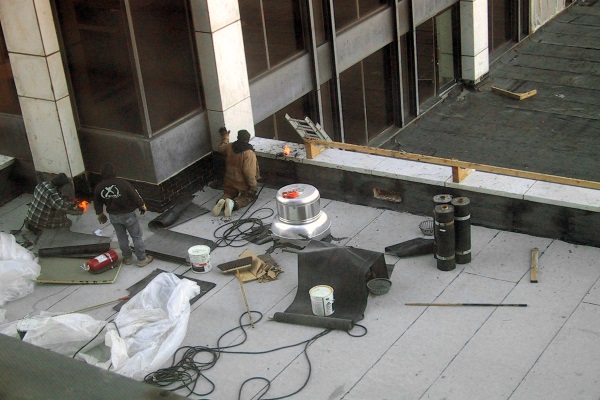
Modified bitumen is a simpler version of BUR, however they require specialized equipment to install.
Making Sure You Have a Perfect Roof Installation
In Toronto ON, commercial properties deserve only the best roofing materials. However, only an effective installation guarantees the long-term performance and lifespan they possess. It pays to work with a roofing contractor that understands the needs of modern commercial roofing procedures, installations, and even tear-offs and re-roofing.
However, if you’re looking for a more affordable alternative to restore your old commercial roof, you can count on Cox Roofing Systems. With decades of experience serving properties across Canada, we can deliver the high quality of commercial roofing restoration that won’t break the bank — and one you definitely need. Contact us today!

